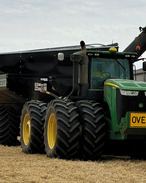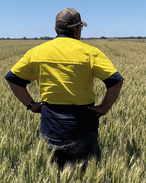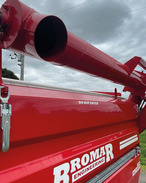This article is 8 years old. Images might not display.
Many businesses may not be aware that the cost of succession planning can be recovered in full or at least, substantially, through a component of the Farm Household Allowance (FHA) provided by the Australian Government. This, of course, depends on the family’s particular circumstances.
The Farm Household Allowance (FHA) provides fortnightly income support to farmers up to a maximum of three cumulative years while they take action to address their long-term financial security. The FHA is paid at the same rate as the Newstart Allowance.
In addition to the base rate of payment, FHA recipients may be entitled to a range of ancillary benefits including assistance with telephone, energy, pharmaceutical and other costs. The three-year period is designed to provide recipients with sufficient time to develop strategies for self-reliance and to create an incentive to make significant business decisions. This may include the development of a succession plan.
To qualify for the payment, there must be a significant labour and capital contribution by the farmer to their enterprise and they are required to be in effective control of the farm. The allowance can apply to a farming couple even where one member of the couple is not carrying out farming duties.
For example, where the farming enterprise is operated as a partnership and one member is largely responsible for the physical labour and another for the book work, both could be considered as contributing a significant part of his or her labour and capital to the farming enterprise.
Applicants for the FHA must be willing to enter into a Financial Improvement Agreement (FIA). An FIA is a planning tool for farmers and their partners to work towards improving their capacity. These activities must be agreed with a case officer from the Department of Human Services. An Activity Supplement is provided for the purpose of funding the cost of an activity specified in the FIA.
Succession planning can be part of this activity. The maximum available amount for the Activity Supplement is $4000 over three years – during the first two years the FHA customer can access up to $3000 and in the final year they can access a further $1000. This can be applied to each partner if they both work on the farm. Therefore, the total claim can be up to $8000.
The client can either pay an invoice from their advisor and claim it back or send the advisor a FHA voucher who in turn sends it to Human Services, together with their invoice, for payment. The farmer completes Part A of the Voucher and the Advisor completes Part B (it must be signed by a member of an approved professional organisation).
A person may qualify for the activity supplement for activities already undertaken or ones that they intend to undertake in accordance with their FIA. Where a person undertakes training or receives professional advice, they must provide evidence that it was provided by an appropriately qualified person. A person is required to make a claim for the supplement within two months of receiving the invoice for the activity from the service provider.
The Farm Household Allowance includes both an assets and an income test. The assets test for the FHA includes two components, a non-farm and liquid asset test, and a net farm asset test. Applicants must pass both tests to be eligible for the payment.
The non-farm asset value test includes all non-business and liquid assets. The net farm asset test includes the net value of all farm assets. Importantly, the value of farm assets is calculated by deducting any debt secured against an asset from the value of that asset. The net farm asset threshold on commencement of the FHA is $2.55 million.
The income test for FHA is linked to the income test for benefits and allowances under the SS Act. Individuals claiming FHA are required to provide an estimate of their business income for the current financial year.
The estimate must reflect their expected net business income for each business enterprise. The interest component of farm losses can be used to offset an individual’s off-farm income. The FHA and its ancillary benefits can be an important tool in assisting a farming enterprise to establish financial security after a difficult period and to undertake a successful business transition.
If you have deferred your succession planning because of a concern over costs, investigate if you may be able to recover them through an FHA supplement. To determine if you are eligible for the FHA, contact your local DHS office and discuss your situation with a Case Officer.
James Benson is an Executive Director at Next Rural. For further information, call 1800 708 495 or email jimbenson@nextrural.com.au























